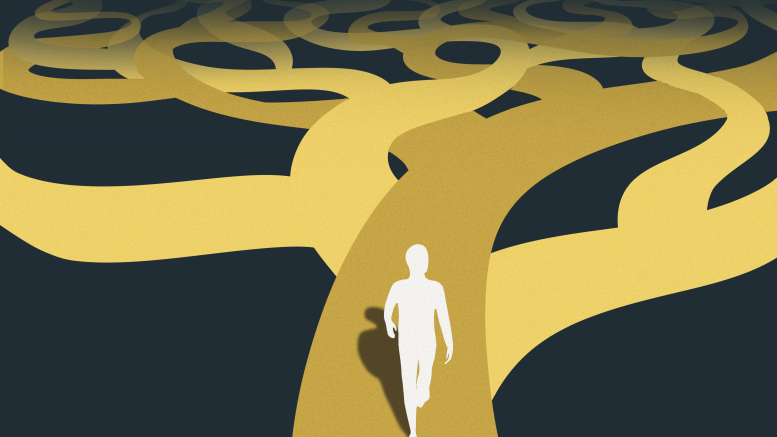Shortly before the Nazi invasion of France forced him to flee Paris in May 1940, the German-Jewish philosopher Walter Benjamin wrote a harrowing essay that I am certain will stick with me for the rest of my life.
“On the Concept of History” was Benjamin’s poetic condemnation of the idea of historical progress. He warned that all efforts to construct a shared cultural tradition rooted in images of the past face an existential threat — namely, “the danger of becoming a tool of the ruling classes.” To say that history follows an inevitable trajectory toward justice and prosperity is to endorse the victors of every past conflict and to trust in the good intentions of the powerful.
In other words, a belief in historical progress “invariably benefits the current rulers.” To the contrary, Benjamin implored us to recognize that “the ‘state of emergency’ in which we live is not the exception but the rule.”
Reading this burned a hole through my chest. Benjamin was writing in the context of the Second World War, but his words ring just as true today.
An article published last month in British medical journal the Lancet estimated that the current hostilities in Gaza have caused as many as 186,000 deaths, a figure that represents nearly eight per cent of the population in the Gaza Strip. Since October, Israel has bombed hospitals, schools, water and sanitation facilities, archives and refugee camps and has targeted health care professionals, aid workers and journalists.
UNRWA, the United Nations (UN) agency responsible for administering relief to displaced Palestinians, announced in June that over 50,000 children needed treatment for acute malnutrition. Overcrowding in shelters and diminished access to clean drinking water have produced 40,000 new cases of hepatitis A since the start of the war. The Office of the UN High Commissioner for Human Rights has reported that there are “substantiated reports of widespread abuse, torture, sexual assault and rape” of Palestinian detainees in Israeli prisons.
The daily atrocities being inflicted on a colonized population — not only for the last 10 months but for decades — are a testament to Benjamin’s suggestion that history should be viewed not as a simple “chain of events,” but rather as “one single catastrophe.”
And yet it is not uncommon at the many rallies I have attended in the past year for speakers to make rhetorical appeals to “the right side of history.”
The implication that to oppose a genocide is to occupy a historically favoured position — that is, to believe that this stance is so morally incontrovertible that its future success is predestined — is the height of wishful thinking.
The concept only makes sense if we take historical progress as a given. The fact that this bloodshed has been carried out with the complicity, indifference or outright support of Canadian government officials and public institutions reveals that this is not the case.
Despite their professed commitment to truth and reconciliation, our leaders are very selective as to which colonial harms they are willing to recognize. Only once abuses have passed safely into the realm of history — once they can no longer be undone — does the ruling class finally acknowledge that anything was amiss. This is why the same people can observe Orange Shirt Day in remembrance of residential schools, while supplying Israel with weapons and sending the RCMP to arrest Wet’suwet’en land defenders.
This is a clear example of what Benjamin meant when he reminded us that the “enemy has never ceased to be victorious.” There cannot be a right side of history if the catastrophe is still unfolding and the responsible parties continue to act with impunity.
More than that, the phrase strikes me as overly self-congratulatory. It is as if the people saying it believe that historical change results simply from individuals holding the correct opinions or staging a few demonstrations. Our collective efforts to put an end to the suffering have thus far proven insufficient. Why are we declaring victory prematurely when we have accomplished nothing?
It is evidently a comforting thought that our righteous acts and beliefs carry eternal significance. It also misses the point. Oppression should be opposed for its own sake, not because of some imagined future reward in the form of historical acclaim.
History is an ongoing and complex process. Our efforts to intervene in it can only succeed with sustained effort and a willingness to engage the masses and develop a robust long-term strategy. My own activism in the Palestinian solidarity, trans liberation and labour rights movements has made me acutely aware of the enormity of our task to build a better world.
By expressing absolute certainty that our present efforts will yield a positive result — which is what “the right side of history” implies — we run the risk of becoming complacent. If we have decided in advance that our decisions will be remembered fondly by future generations, then we have failed to acknowledge our shortcomings or allow for the possibility of improvement.
Activism requires humility and patience. The work it entails is often at once strenuous and boring. The future outcomes you hope to see are uncertain and may take many years or even a lifetime to achieve. Mistakes are inevitable.
This is why I refuse to say that I am on the right side of history. I will not hazard a guess at what the historians of centuries to come will think of me or the social movements in which I was involved — if they even think about us at all. I hope that one day I can claim to have played a small role in bringing about a world free from oppression and putting a stop to the historical calamity.
But we are not there yet.


